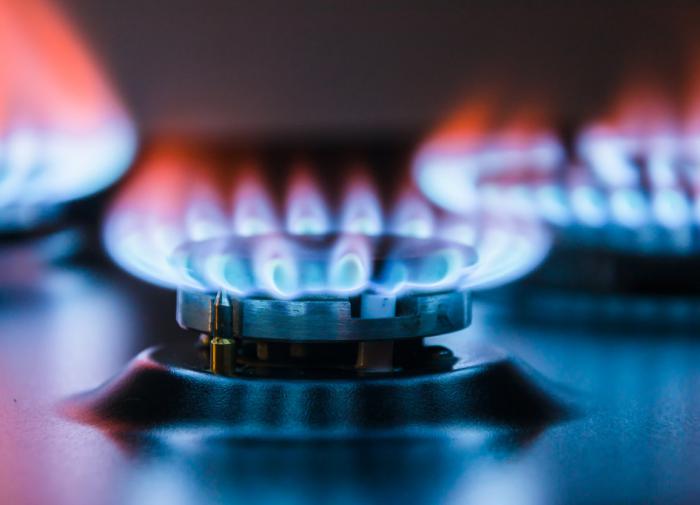Russia and EU enter into gas war of attrition and survival
Reports about a considerable reduction in fuel supplies to Germany through the Nord Stream 1 gas pipeline raised serious concerns both in Berlin and in Brussels.

The officially announced reason is the inability of Siemens concern to repair gas compressor turbines. Therefore, Gazprom, acting on the instructions from Rostekhnadzor (Federal Service for Environmental, Technological and Nuclear Oversight of Russia — ed.), temporarily stopped the operation of the turbines. As a result, two out of four gas compressors have been shut down since the beginning of June. The daily consumption of natural gas has decreased by 60 percent.
A week ago, Germany's Siemens announced that sanctions against Russia made it impossible for the company to return a turbine for the Nord Stream 1 gas pipeline to Gazprom after it was repaired in Canada. The turbines have been refurbished at the Montreal plant and were ready for shipment, a Siemens spokesman said. The problem "appears to be not technical, but political or rather geopolitical."
The price of gas futures transactions rose sharply and reached up to $1,500 per thousand cubic meters against such a background.
In turn, German Economy Minister Robert Habeck said that the reduction in gas supplies was an attempt that Russia made to "distort the market and raise prices."
Nord Stream 1 is Europe's only hope
In fact, the suspension — even partial — of Nord Stream 1 becomes a significant barrier to pumping Russian gas to European buyers simply because it is the only fully functional route for natural gas supplies.
The second gas transportation system (through Ukraine), fell victim to Kyiv's ambition, which refused to accept gas in May through the Sohranivka gas distribution station in the Russian-controlled area of the Luhansk region.
A little later, Moscow announced that it would not supply gas through the Polish section of the Yamal-Europe pipeline due to the imposition of sanctions against the Polish company that owned the pipeline.
Gas war of attrition
Business analyst Gleb Prostakov believes that it does not really matter whether the problems that Siemens described were the true reason for the sharp reduction in gas supplies.
The gas war, which already began with the implementation of the sixth package of sanctions, has been gaining momentum even though European officials have repeatedly stated that the EU was not viewing Russian gas as a potential target for sanctions.
"They understand that there is no alternative to Russian gas. Russia accounts for up to 40 percent of EU gas consumption. Unlike oil, which is mainly transported by sea, gas is mostly transported via pipelines. However, there is no developed infrastructure in Europe for the consumption of liquefied natural gas. In addition, the world lacks free gas resources in the whole world.
Conversely, the EU is a preferred market for Gazprom. Russia supplied up to 70% of its gas exports to European countries. However, Russia seems to be moving more confidently into the current confrontation," Vzglyad quoted Prostakov as saying.
Speaking at the SPIEF, the head of Gazprom, Alexei Miller, said that the company was not disappointed with a decrease in gas supplies to the EU, since commodity prices simultaneously rose several times. He also notified counterparties that Russia was introducing a new principle in gas sales:
"Our product — our rules."
Vladimir Chizhov, Russia's Ambassador to the EU, warned that Nord Stream 1 could even be shut down all gas compressor turbines would be sent to Canada for repairs.
Brussels intends to completely refuse from the use of Russian natural gas and other energy sources. The EU leadership is actively looking for new suppliers, preparing to build LNG and green energy infrastructure.
It is hard to say whether the EU is going to succeed here.
"Russia has come to understand that gas has become a geopolitical weapon that Moscow should use here and now. They start to reorient supplies, and this is the right thing to do, because EU and US sanctions have provided Russia with every reason to retaliate,” says Prostakov.
European gas storage facilities are very low on stocks today. In Germany, for example, they are only 56% full. If it continues like this, Germany will face a stalemate situation for its economy.
Russia also has problems to deal with. It goes about Russia's gas transportation problems. Reorienting gas supplies to the East will take five years to say the least. When Russia's gas storage facilities are full, gas production will have to be reduced.
War for survival
The gas war is a war for survival in energy politics, and both sides will suffer significant losses in this war.
For Russia, the reduction in gas supplies is associated with a decrease in export revenues and, probably, with the need to partially stop production. For Europe, the coming winter may have even worse consequences, such as:
- large-scale industrial shutdowns;
- cold homes;
- difficulties with products supplies;
- internal migration in the EU;
- critical growth of social tensions.
The EU may not be able to deal with it.
Subscribe to Pravda.Ru Telegram channel, Facebook, RSS!


